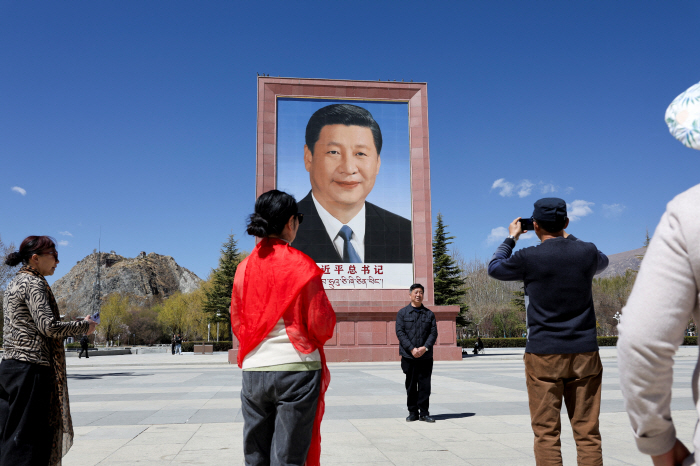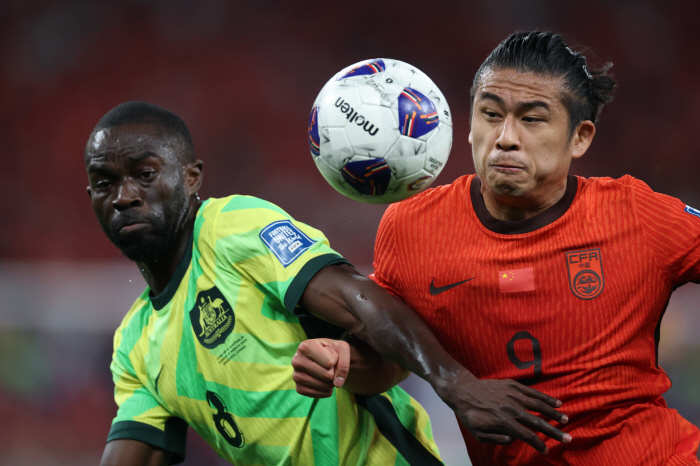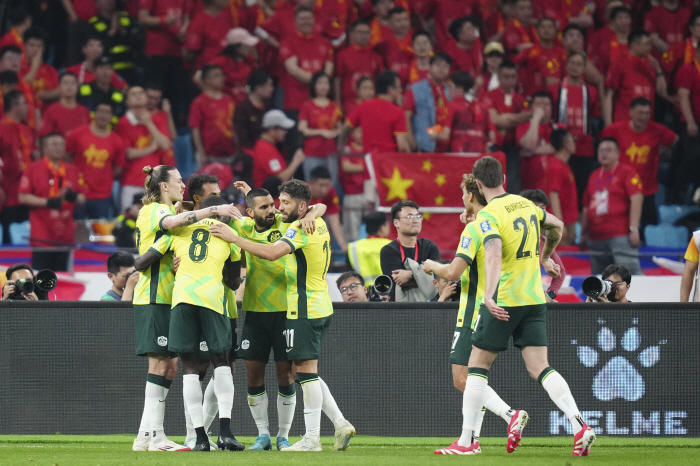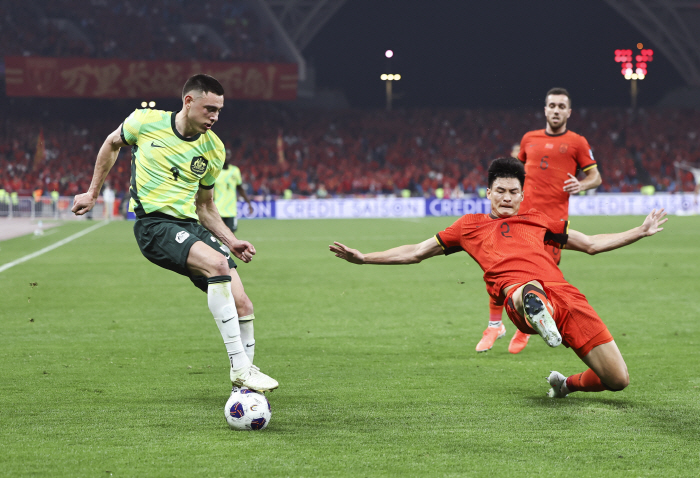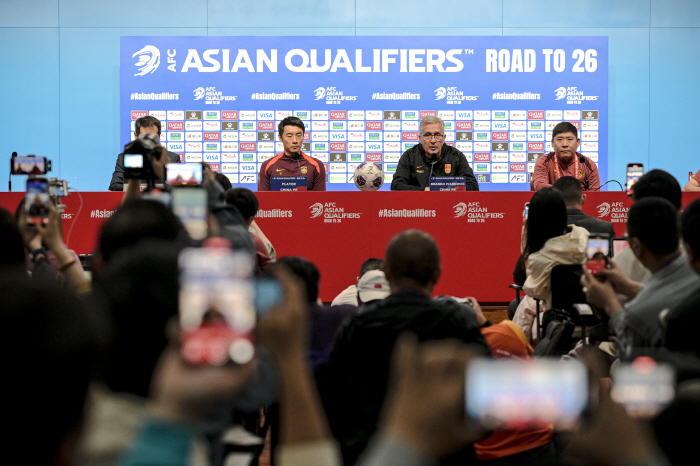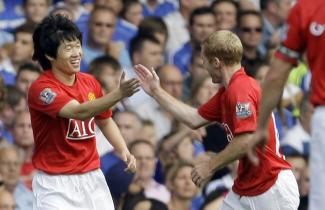British public broadcaster 'BBC' found the reason why Chinese soccer cannot cross the World Cup threshold in 'reverse pyramid'.
On the 29th (Korea time), the Chinese portal 'Sohu Dotcom' introduced an analysis article 'BBC' that deals with the continued decline of Chinese soccer. After the Chinese national soccer team lost 0-2 in the eighth match of the 2026 North-China World Cup Asia 3rd qualifying round against Australia on the 25th and missed the ticket to the World Cup finals, which is given to the top two teams in each group, the BBC reported on why the dream of super-powerful Chinese football was shattered.
According to the outlet, Mark Dreyer, a sports journalist living in Beijing, said, "When the Chinese government decides something, it rarely fails. Electric cars, look at the Olympics. China can do everything it thinks."
Soccer is different. China has not been on the World Cup finals for more than 20 years since the 2002 Korea-Japan World Cup, which was co-hosted by South Korea and Japan. The World Cup was changed to a system in which six teams, which have increased significantly, automatically qualify for the finals through the third qualifying round, but China failed to pass the first gate. With only two wins (6 losses, 6 points) in eight games, China is at the bottom of Group C. The remaining mission is to win tickets for the fourth qualifying round, which will be given to the third to fourth place in each group through two consecutive games in June. Currently, they are four and three points apart from Saudi Arabia (10 points) and Indonesia (9 points), which are ranked fourth, respectively. You have to hope for a miracle to reverse the rankings.
Rowan Simmons, the author of the football book 『Bambu Golposts"The failure of Chinese football is a national disgrace. Finding the reason has become a national obsession.' As for the reason for the poor performance of Chinese soccer, he diagnosed "Everything should be reported to the top, and fundamentally, football decisions are made by people who are not related to football." Simmons analyzed that unlike ordinary countries, in China, the `football pyramid' is upside down.
In fact, there are 1.3 million officially registered soccer players in the UK, while there are fewer than 100,000 in China. China's population (more than 1.4 billion people) is 20 times larger than that of the United Kingdom. Dreyer says "Children here (in China) don't grow up with a ball under their feet. If you don't have the ball, you can grow the elite." While European and South American football began on the streets and parks of towns, Chinese football began in the capital Beijing. It wasn't until the 1990s that the Chinese government launched a professional league. The government established a first division club in a large city, but neglected the lower leagues.
In such a bottom-up system, Dreyer took an approach in which officials produced 'short-term performance' to impress their superiors. A European-born player who plays on the Chinese stage said the Chinese players are 'technically excellent' but" lack of football IQ' needed at critical moments. "Creativity and basic decision-making are things we learn instinctively from an early age. But you don't see a lot of that here."
The BBC also analyzed that corruption is still prevalent, such as the bankruptcy of famous clubs due to financial and social problems before and after the COVID-19 pandemic, and the fact that they become national team managers (Littier) when they pay bribes is another factor that hinders the development of Chinese soccer. Dreyer said "Japan and China have the opposite approach to football. Japan said it has a long-term vision, less government intervention, and a club structure from a business perspective.
'BBC' concludes the analysis article with an article left by a famous Chinese reporter after China suffered a 0-6 defeat in an away match in Japan in September last year. The corresponding reporter "Football is not influenced by cheering song or storytelling. Football requires skill, physical and tactical training, not executive orders," he wrote 'factual'.
This article was translated by Naver AI translator.
